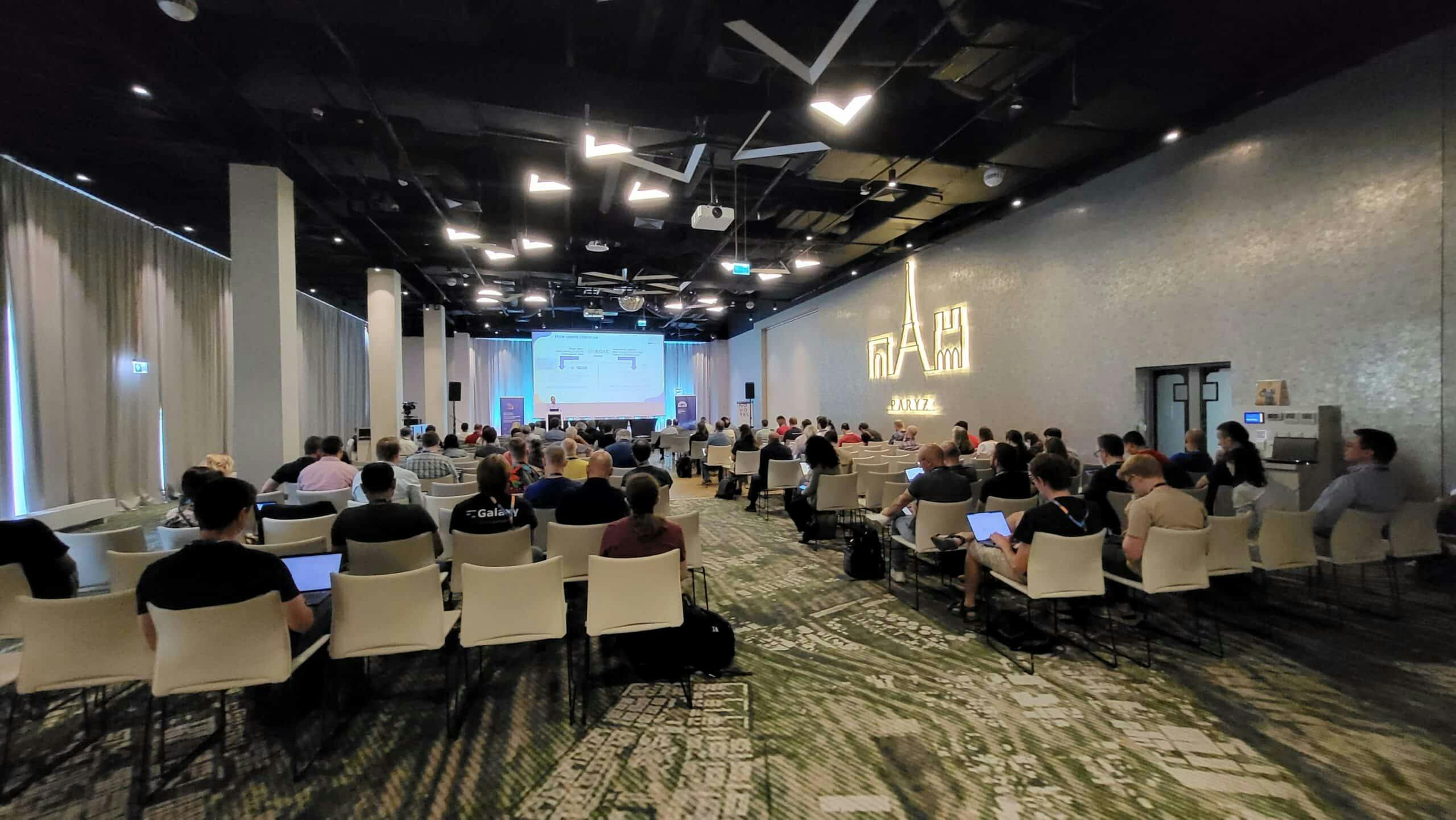Highlights from #EGI2023 – Day 2

The second day of the conference focused on the computing and data continuum in Europe, specifically addressing the increasing data processing and analysis needs in frontier research. The day started with an opening plenary followed by a marathon of parallel sessions covering various topics related to data-intensive scientific collaborations and the requirements for data, high-throughput computing (HTC), high-performance computing (HPC), and cloud federation in Europe.
The first session, convened by Tiziana Ferrari, the EGI Foundation Director, provided an overview of the needs for data-intensive scientific collaborations to access an Exabyte-scale research data federation and compute continuum in Europe. Thomas Geenen from ECMWF presented the Destination Earth initiative, highlighting the importance of new data-intensive architectures and IT frameworks to meet the upcoming challenges. A panel discussion followed, featuring experts from ECMWF, CERN, INFN and IIS, who shared insights on the state-of-the-art and open challenges in data, HTC, HPC, and cloud federation.
Another session focused on OpenStack operations in the EGI Federation, discussing the challenges and solutions for operating large-scale OpenStack deployments. The session aimed to foster collaboration between EGI federation members, commercial cloud providers, and companies using EGI services.
The C-SCALE project was highlighted in a session that explored the comprehensive service portfolio available in the EOSC Marketplace for advanced Earth Observation analytics. The session provided insights into how C-SCALE empowers users with advanced analytics and discussed opportunities for data and compute providers to join the C-SCALE federated ecosystem. The long-term sustainability of C-SCALE services and its connections with initiatives like Destination Earth and Digital Twins were also discussed.
Data analytics platforms, tools, and Virtual Research Environments (VREs) for EOSC were presented in another session. The focus was on how these platforms and tools are facilitating big data analytics and supporting the daily work of scientific communities and research infrastructures, with EGI services playing a central role.
The session on major European data initiatives addressed the vision, business model, and sustainability of initiatives like EOSC, Data Spaces, and AI on Demand (AIoD). Experts shared experiences and best practices for effective governance and long-term sustainability of data spaces, discussing topics such as data privacy, interoperability, and business models for data exchange.
National infrastructures for Open Science in EGI and beyond were also discussed in a dedicated session. The session highlighted new services and plans from EGI national stakeholders and explored alignment pathways for national EGI nodes and the European Open Science Cloud (EOSC).
Other sessions covered topics such as dataspaces and AI/ML services in the agricultural domain, services for the EOSC from projects like EOSC Future and infraEOSC, emerging architectural directions for federated digital infrastructures, green computing to reduce the environmental impact of computing, advanced cloud services for research, trust, security, and identity management, and the use of Artificial Intelligence and Machine Learning in various fields.
The day concluded with a session focused on achieving sustainable funding for EOSC, presenting the results of a consultation survey on the financial sustainability of EOSC. The session discussed the relevance of the results to business models for EGI and explored potential avenues for sustainable funding.
Overall, the second conference day provided a comprehensive overview of the current state of the art, challenges, and opportunities in the computing and data continuum in Europe, bringing together experts, researchers, and stakeholders from various domains to foster collaboration and innovation.
